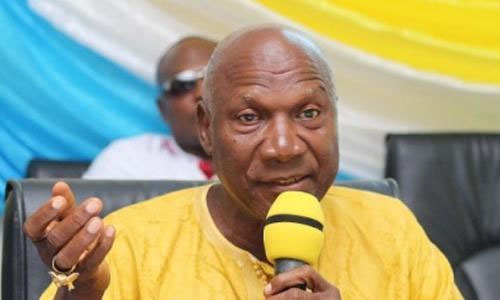In some cultures, the number 13 is dreaded. They have taboo days such as Friday the 13th, that is, every Friday that falls on the 13th day of a month. For buildings that rise up to, and beyond thirteen floors, there would be no Floor Thirteen. Perhaps the elevator would get stuck there! So in numbering the floors, they’ll always jump from a 12th floor to 14th floor.
We as a people and our culture don’t care about number 13, let alone fear it. So we picked number 13, as the chapter in our 1992 Constitution to make rules for the way we would make our common money and spend it; assuming the spending officers will protect it.
Chapter 13 of the Constitution is where the financial wherewithal for our development, improvement in our living and livelihood conditions, are prescribed and outlined. To create the human capital that drives all development activity, the infrastructure upon which activities would ride and businesses that would operate for things to happen, it all takes money.
When I googled ‘chapter thirteen of the American constitution,’ the result was, ‘Constitutional Freedoms.’ Meanwhile, the ‘13th amendment’ to that same constitution googled read: ‘Neither slavery nor involuntary servitude, except as a punishment for crime whereof the party shall have been duly convicted, shall exist within the United States, or any place subject to their jurisdiction.’
In that case, neither the original constitutional text nor an amendment to it, talked about finances like ours. Therefore, in crafting their mother legislation, Americans seemed to have preferred to risk superstition about freedoms and slavery to constitutional issues that had to do with cash.
I dream a conference of all the civilian generals expected to shield our money from those who thief it, at the beginning, middle and end of the term of every government to discuss how those who, when in charge, managed to steal monies. I have in mind the Auditor-General, Attorney-General, Controller and Accountant General, Director-General of the Criminal Investigations Department of the Ghana Police Service, Director-General of EOCO and the Registrar-General.
With the Registrar-General, it would be interesting how she would monitor companies which get instantly registered through which public funds get fraudulently funnelled. The conference may also include the chair of the Public Accounts Committee of Parliament. That individual, however, may not contribute much since Parliament does not even have budget review and analysis experts to advice it.
I get the impression we were better off checking corruption before a mere slogan of accountability and probity was introduced into the language of politics. We wrongly and failingly resorted absurdly to the most extreme form of punishment conceivable. We actually put ‘convicts’ of corruption to death. That was absurd because corruption was in some instances pettily defined outrageously as taking a loan from a bank without payment default. That couldn’t be accountability.
Or, maybe, we should have feared legislating our national finances and development financing in a Chapter 13. Money’s nerviness in operations of any kind, advises it should be dealt with free of anything that could negatively impinge or obstruct its administration.
An institutionalised conference of the civilian anti-graft generals, as outlined here, is one mechanism that I propose would help find answer to the endemic stealing from the public funds by those entrusted with its disbursement.
In our circumstances, plugging the leakage is as important as raising the funds.
If it wasn’t leakage that has destroyed our economy, what else? Take the classic 2009 to 2016 example. Kufuor left so much, including oil, which was ready to pump in millions of dollars. Cocoa and gold were selling at record high prices. Squanderers took all that money and sank it into a ‘create, loot and share’ judgment debt payment ventures.
Rather than improve his social intervention programmes he bequeathed, they were not even sustained. They were all killed outright. One would ask where were the generals of accountability when the thieving happened? They were nowhere to be found. If they were holding their three-in-a-term conferences, they would have, in the least, flagged the danger of judgment debt in 2012 to see if it could have been mitigated in the term that followed.
Public accountability can also be more than about money alone. It came up in the election petition of 2021 when people wanted the EC chair to be accountable. The President appoints the EC chair; and, indeed, a president appointed an EC chair in 2015. So what if the appointer called a press conference and said: ‘I have been MP three times. In each of the years 2000, 2004 and 2008, I took so much ex-gratia. Add as deputy minister and as minister, president, twice, in 2012 and 2016, I took so much for a retiring president.
‘With all that public money, I acquired so many mansions, set up so many businesses but also had to take care of so many concubines and children. So the balance in assets, as the Constitution asked me to declare, are the following.’ Who would not have morally asked the EC boss to also account? That is accountability to the public, of the money and resources that were entrusted to a president’s care. A president who renders accounts can always ask whoever he appoints to similarly render accounts.
By Kwasi Ansu-Kyeremeh


